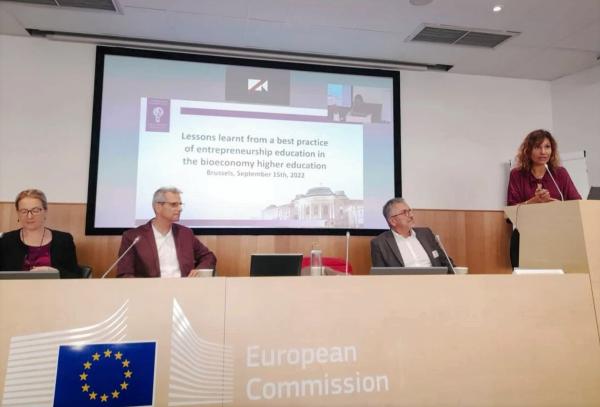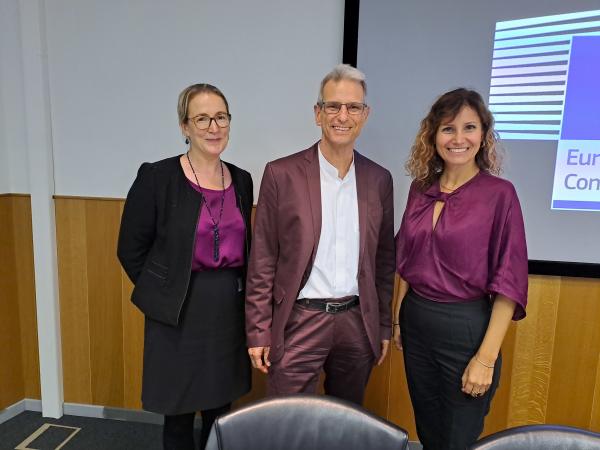16.09.2022
During the final conference on “Promoting education, training and skills across the bioeconomy” which was held in Brussels on September 15th, Marina Stefanova, PhD, director of the MA programme in Responsible and Sustainable Governance, was invited to take part in the Plenary Session IV “Entrepreneurship education for the bioeconomy” and share Lessons learnt from a best practice of entrepreneurship education in the bioeconomy higher education.
The meeting was part of the 2-year assessment of the current and future (2030 and 2050) needs for professional profiles and skills, bringing together a quantitative forecast exercise and a qualitative ‘foresight’ activity, which incorporates expert insights on the future of the bioeconomy, conducted by Deloitte, Empirica and Fondazione Giacomo Brodolini Srl SB (FGB), mandated by the European Commission’s DG Research & innovation (DG RTD).
This assessment is compared against the current education and training provision in the bioeconomy at three levels: higher education, vocational education and training, and entrepreneurship training. This comparison highlights key unmet training needs that need to be addressed to realise the opportunities that the bioeconomy can provide in the future.
The Final Report of the study on “Promoting education, training and skills across the bioeconomy” included European best practices in the field of HE, VET and education in entrepreneurship and the Faculty of Economics and Business Administration’s master programme in Sustainable and Responsible Governance, was included as a best European practice, defined as a governpreneurship. It was highlighted that the education is in line with the United Nations’ agenda for meeting the Sustainable Development Goals as well as the European Green Deal. It aims to train a new type of specialist in sustainable business development and corporate social responsibility for both the public and private sectors. This is the only educational programme from a business faculty included in the study which covers 10 countries in Europe (Belgium, Bulgaria, Estonia, Finland, Germany, Italy, Latvia, the Netherlands, Slovakia, and Spain).
The study also includes recommendations for each of the education levels to address these skills needs, including model curricula which draw on case studies of good practices. These recommendations cover both the content of model curricula, as well as approaches to developing and updating programmes to meet the changing needs of the bioeconomy.
In his closing remarks, Mr. Adrian Leip, from DG RTD of the European Commission, resumed that “We need to push bioeconomy from the niche to norm, as it is both an enabler of the European Green Deal but also the end point of our transformation”.
More information of the study and supporting materials you may find here:
Policy brief:
Final report:
Factsheets:
Higher education
Vocational education and training
Entrepreneurship education




